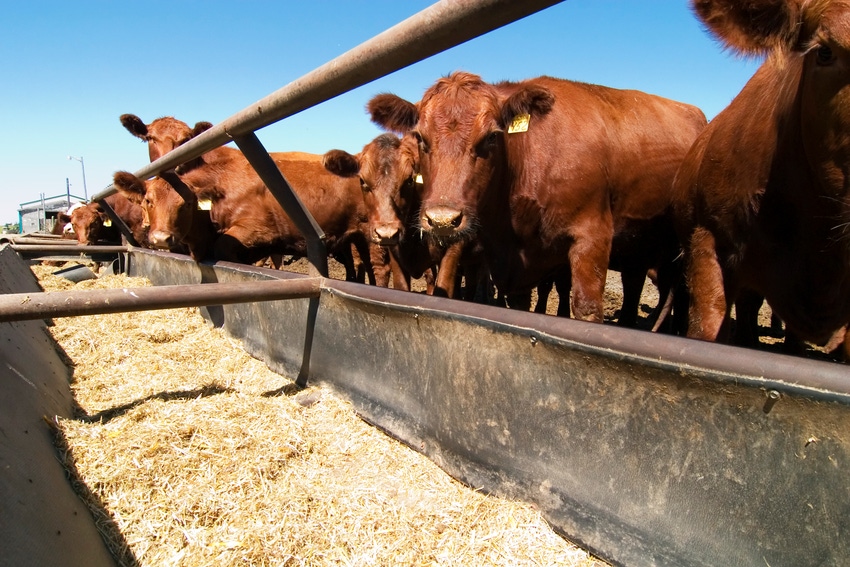Supply disruptions may be very local and continuously changing.
March 26, 2020

Following COVID-19 related disruptions and volatility in the cattle markets, some ethanol plants have started slowing production or shutting down, which may limit local availability of corn co-products, according to the Iowa Beef Center.
Iowa Beef Center director Dan Loy said making plans now based on current and potential input availability will help producers determine their next steps.
"This situation is very local, continuously changing and will vary from producer to producer and community to community," he said. "Supply disruptions could potentially affect other inputs such as feed additives, implants and trace nutrients. Hopefully, these disruptions will be short lived."
Loy suggested that cattle producers who rely on corn co-products consider the following:
1. In feedlot diets, soybean meal or urea-based supplements (dry or liquid) can replace all of the protein from corn co-products. However, smaller calves, calves with lower feed intake or those on growing diets may not be able to utilize all of the protein from urea. Formulating on the basis of metabolizable protein accounts for this. The high solubility of urea also comes with limits, Loy said, suggesting that producers consider these limits for the safety of beef cows and backgrounding cattle.
Other potential protein sources that may be on hand include whole soybeans, which, at 40% protein, can be a good protein source for beef cattle, although the fat content (20%) limits the amount that can be fed.
Another option is cereal rye, harvested at the boot stage, which can be as high as 20% protein or higher.
2. When substituting a higher-protein supplement for distillers grains, you will likely be substituting corn for distillers as a source of energy, adding more starch to the diet. Be sure to use an adjustment period; also consider adding more fiber to the diet and managing feed bunks more closely.
3. Lean on nutritionists and other advisers. Regional extension beef specialists are good resources for advice on the options available, Loy said. If adjustments need to be made to implant or supplementation strategies, base decisions on the options available and research-based information.
You May Also Like



